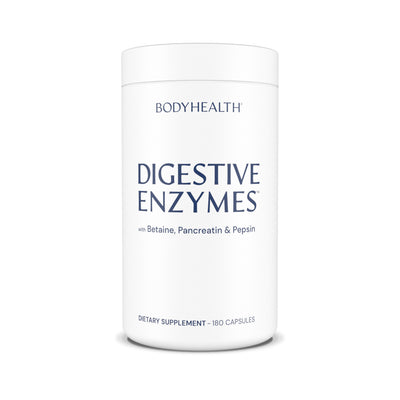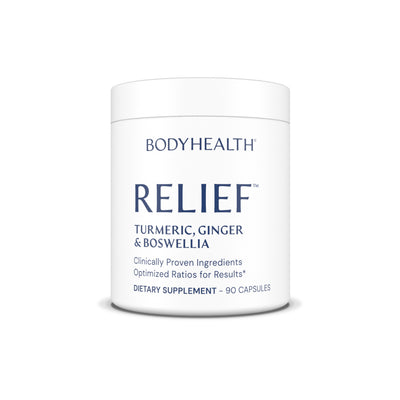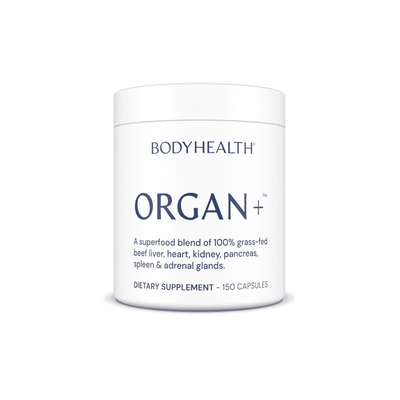The Diet Of The Golden Age Body Builders
January 07, 2026 7 min read

When we look at Lean Bulking, building lean muscle without the excess body fat, we need to look back at what the original body builders did, the golden age body builders.
Because it was very different to what is done now.
And I'm not talking about the 70s or 80s when counting macros and Bulking & Cutting became popular.
We're going earlier.
To the time of Jack LaLanne and the other greats, before egg protein powders, whey powders, creatine, and BCAAs were first introduced.
Back then body builders ate very differently. But very effectively.
They had no processed sugars available to them. They just didn't exist.
They had no processed fats or non-organic, GMO meats.
The animals were fed their natural diet, passing on more vitamins, minerals, and nutrients, as well as a very different fatty acid profile, one which allowed for faster recovery and less fat-building.
Fish were wild-caught, not raised in nurseries.
And their diet was much lower in carbs, anywhere from high levels of about 35% down to 10%.
Their highest macronutrient was protein. Then came fat and then carbs. And these were all from whole foods, nothing processed.
And they did much better. They didn't reach the level of muscle of steroid users injecting insulin or HGH, but they didn't reach levels of poor health due to these things either.
They also didn't often count calories.
They just ate.
And, because they weren't getting addicted to processed sugars or consuming trans fats, rancid fats, or high levels of omega 6 (all of which raise cortisol quite high, helping to build more fat), they didn't have too many cravings.
There was no insulin resistance or leptin resistance to make them hungry when they actually weren't.
Because they ate plenty of protein, they had normal levels of stomach acid and enzymes with which to fully break down new proteins coming in, as… stomach acid and digestive enzymes are made from proteins.
(When our protein levels go low, our digestive system suffers. So we don't fully digest all of our food. So we don't get all of the amino acids or nutrients from it.)
They worked out for two to three hours per day and ate when they were hungry.
They also didn't do much bulking or cutting.
If they wanted to gain more, they ate more, and if they wanted to lean out, they ate a little less while continuing their workouts or did a little cardio to burn it off.
But not too much, or at least nowhere near the amounts thought of today as "necessary."
Imagine how they would have been with PerfectAmino.
How Our Foods Changed, Necessitating Bulking & Cutting
But in the '50s we started seeing egg protein powders. And these may be made from eggs, but they are not the same thing. They're processed more. Some of the fats in them have gone rancid, and the sugars have been broken down, so they hit the system faster, raising insulin levels more.
Also, at that time, whey was looked on as a garbage byproduct of dairy producers and was sold or used as a fertilizer for crops.
Then petroleum fertilizers came out, and these were cheaper, so farmers switched.
Looking around, these dairy producers with extra whey on their hands saw it could be used as a protein and so marketed it as that.
But whey, besides having a low protein utilization score (only about 18% is used to build new protein, the rest being converted to sugar or body fat), is also very processed, including the sugars in it. The sugars become fast-acting, raising insulin levels and fat storage.
It’s also harder on our digestive tracts.
But none of these things, nor BCAAs, steroids, HGH, or insulin injections, were used by any of the golden age body builders.
Their foods were whole foods. No chips, microwave dinners, cookies, or pizza.
Also, it wasn't until around the 70’s that the faulty advice to lower fats and raise carbs started gaining traction, so they didn’t follow that.
Consuming fats doesn't build body fat. Consuming too much sugar plus fat does.
Then, processed sugars like high fructose corn syrup came out in the late 70s, at the exact time that obesity rates in America start rising. (Obesity rates have gone from under 10% to above 40% since the release of processed sugars.)
And GMO corn and soy started to be used to feed cows in the '80s instead of grass, completely changing their whole fatty acid profile from an omega 6/3 ratio of about 3:1 into 17:1, something that raises cortisol in our bodies, prioritizing fat gain over fat loss.
In fact, it wasn't until the '80s and '90s that body builders really started counting macros.
Because now they needed to. All the junk was starting to have an effect.
Fat started stacking up on their bodies much faster and was harder to lose. So cardio also became much more important.
(Cardio is important, but let's do it for the reasons it helps us or because we enjoy it, not because something else is constantly making us over-produce body fat, so we're forced to.)
We've changed our diet so completely and yet so gradually that we didn't even notice it had become fundamentally different.
So let's take a note from the people who were already doing pretty well eating naturally.
Jack LaLanne even made a point later on to never touch processed sugars or packaged foods, only food made of individual ingredients that had been cooked.
He was big on protein, then fats, and moderate on carbs. And fish was pretty much the only meat he ate — high in Omega 3 fatty acids.
And while many people will say, "Yes, but such a high protein and fat intake is bad for you," well, he lived quite healthily to the age of 96.
Compare that to many bodybuilders in the last few decades dying in their 40s and 50s. They have high processed-carb diets, lots of protein powders, and they take growth hormone and testosterone to beef up.
And many are type 2 diabetics because of it.
You don't need these very high levels of carbs, at least not processed carbs.
Sure, if you're doing much longer workouts then you need more energy to do them.
But… if you're working out and adding fat at the same rate as you add muscle, well, that fat isn't coming from nowhere. That's extra carbs that weren't used for energy during your workouts. Otherwise, it wouldn't need to be stored as fat.
Either way, we don't need these processed foods and processed sugars.
They don't help us. They just get in our way. They are the reason we need so much more cardio in our routines to keep or get the fat off.
These extreme cardio and cutting techniques are solutions for a created problem.
Well, what if we just stop creating the problem?
When we give our body what it needs and not what it doesn't, we don't need to do excessive bulking and cutting.
We just Lean Bulk, adding lean muscle without the excess body fat. And if we gain a little extra fat, it comes off fast.
Go here to start the Lean Body/Lean Bulk Protocol.
And you can find a complete index to the full Lean Body/Lean Bulk Guide, with diet, protocol and exercises, below.
And make sure to join our BodyHealth Facebook Group if you haven't already, where you can ask any questions and we can help you with whatever you need.
The Lean Body Lean Bulk Guide & Protocol
If you want to build lean muscle without the excess body fat, and then keep building, you need to check out the Lean Body/Lean Bulk Guide and 30-day Challenge.
This is not Bulking & Cutting where we add both muscle and body fat at the same time, requiring us to cut calories and increase cardio afterwards to lose the body fat created.
Instead, here we build lean muscle while not only not gaining excess body fat, but losing it.
But there are two different programs depending on your goals:
We can either add lean muscle without gaining excess body fat (but losing it): Lean Bulking.
Or, if you just want to attain a slim, lean, toned, and shaped body, without visibly adding extra muscle, we have Lean Body.
Check out the Lean Body/Lean Bulk Guide here to get all the details.
It's very effective.
You can get continued 15%-30% savings by purchasing needed products with our subscription program, our save by purchasing them in a package.
Note: This program is designed to target building and/or toning muscle while slimming down, not to help you lose significant body fat.
If you have more body fat to lose, the most effective thing would be to first do the Fat Loss Protocol and then transition onto Lean Body or Lean Bulk afterwards. This would be the fastest and most effective route for you, and you will be toning and shaping muscle along the way, so you won't miss out.
Or, if you have stomach bloating (your stomach will press out, mostly above the belly button and feel somewhat hard like pushing on a balloon) and strong sugar cravings, we would first recommend the Gut Health Protocol.
This is because this bloating is not body fat, but comes from harmful bacteria and candida in the gut which create constant gas and bloating, along with extreme sugar cravings.
Addressing this can help us lose inches around the waist in a matter of days or weeks.
And it makes the Fat Loss and Lean Body/Lean Bulk programs much easier.
And make sure to join our PerfectAmino VIP Group if you haven't already, where you can ask all of your questions and we can help you with anything you need.
We'll see you there!
Index To The Lean Body/Lean Bulk Guide:
Introductory Articles:
Getting Started:
- The Lean Body/Lean Bulk Guide & 30-Day Challenge
- Hormones: The Third Dimension of Calorie Cutting
- The Lean Body/Lean Bulk Diet
Supplements & Macros By Goal:
- Supplements & Macros For Lean Body
- Supplements & Macros For Beginner To Moderate Lean Bulking
- Supplements & Macros For Advanced Lean Bulking
Workout Regimens & Exercise Videos:
- Beginner to Moderate Level Workout Regimen
- Advanced Workout Regimen
- Lean Body/Lean Bulk Exercise Videos
Week One:
- Metrics & Key Data For Week One
- How BCAAs Build Body Fat & Lower Health Over Time
- The Importance Of Complete Protein Digestion
Week Two:
- Dialing In Our Macros For Lean Muscle: Hormones & Cravings
- How Cortisol Breaks Down Muscle & Prevents Protein Synthesis
- How To Improve Growth Hormone, Testosterone & Protein Synthesis
Week Three:
- Thyroid, Estrogen & Progesterone: Speeding Fat Loss & Lean Muscle Creation
- Improving Sleep: Muscle Building, Fat Loss, Mood & Aging
- Maximizing Cellular Function For Endurance & Recovery
Week Four:
- Raising VO2 Max: Endurance, Performance & Recovery
- How Toxins Affect Our Hormones: Building Muscle & Fat Loss
- Blood Flow For Muscle, Fat Loss & Overall Health
Final Week:
Articles by Health Topic
Your Path To Better Health Starts Here!
From in-depth articles on nutritional benefits to updates on new product launches, stay informed and inspired on your journey to optimal health.
*These statements have not been evaluated by the Food and Drug Administration. These products are not intended to diagnose, treat, cure, or prevent any disease.
















